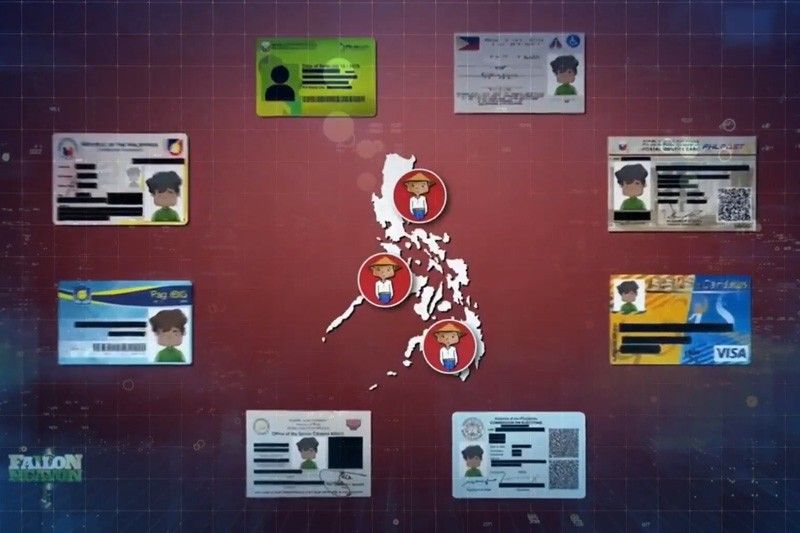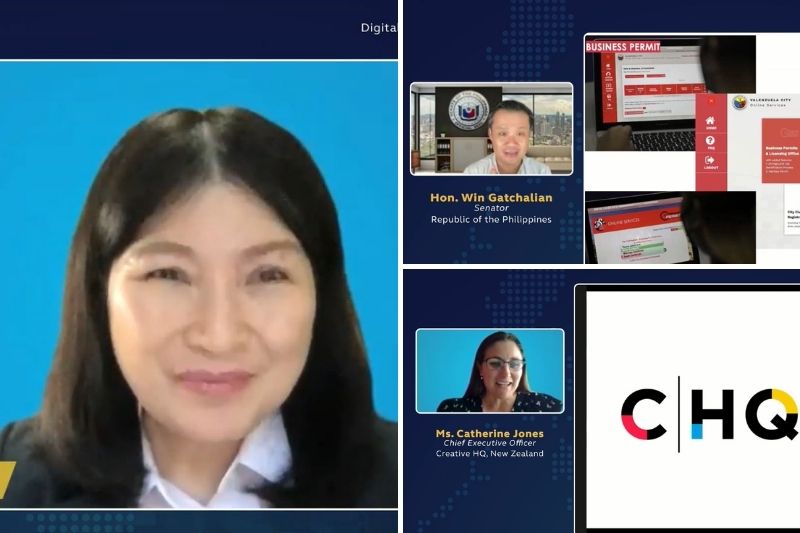Globe forum tackles e-government as ‘new frontier’ in the Philippines

Telco company, private and public sectors rise together for digital transformation
MANILA, Philippines — Almost two years into the pandemic, countless Filipinos have already adapted to digital ways, learning and working remotely, relying on online shopping and food deliveries, finding entertainment through social media and the internet, and even setting up their own mobile banking and e-wallets.
While the crisis has indeed accelerated the digitalization of businesses and companies, the government’s shift, on the hand, lags behind.
This is what public officials and private stakeholders observed at the last leg of the Regional Insights and Strategies for Enterprise/e-Government by Globe Business last November 25. Dubbed Digital Transformation in the Government, the online forum had a plenary session and fireside chat panel featuring a wide range of speakers.
In his special message, Ayala Corporation Chairman Jaime Augusto Zobel de Ayala, said, “Over the last two years, the onset of the lockdowns has seen digital activities over a wide range of economy, rapidly expand. Demand for retail and e-commerce food, grocery deliveries, online banking, digital transactions, telemedicine, online education, online entertainment, social media use, virtual meeting platforms and work from home tools have all boomed. It’s been extraordinary.”
“But I do feel that there is one frontier to open up, a frontier that will open up access to even more people, and that frontier is government,” he further expressed.
Road bumps in e-government transformation
An e-government empowers citizens to transact and apply online for official permits, legal documents, licenses and IDs, birth, marriage and death certificates, among many others, from national government agencies (NGAs) and even their local government units (LGUs). With this comes ease of business and convenience on everyday lives.
However, it’s a given that many NGAs and LGUs are still facing challenges in moving their official businesses and processes to digital.

Peter Maquera, SVP for Enterprise Group at Globe, cited a 2020 UN e-government survey report in identifying road bumps such as resources limitations, a lack of digital infrastructure, and insufficient capacities and capabilities.
With all these factors at play, Sen. Win Gatchalian, who is the author of Senate Bill 1793, or the Full Digital transformation Act of 2020, acknowledged that there is indeed a big gap between the private and public sectors.
“There’s a big gap between the private sector and the government in terms of the internet economy. While the private sector is growing at a rapid pace in terms of e-payments, in terms of e-commerce and everything, the government is lagging,” Sen. Gatchalian said.
According to the senator, only 58% of LGUs have functioning websites, and only 39% have some form of online business registration, based on a survey conducted by the Department of the Interior and Local Government.
“If you ask the local governments, how many of them are using their portals or their websites to register businesses, it’s actually quite depressing,” he said.
Then, there’s also the gap in Filipinos who are using websites and digital portals to access government services, only 19%, compared to those who still prefer manual and onsite transactions, at 81%.
“This is a big challenge to educate. I really believe that cultural transformation should not only happen within government but also outside of government,” he said.
Innovation is key to transformation
While it still seems like a long way to achieve digitalization of the government, innovations are being undertaken to accelerate transformation.
The Department of Trade and Industry (DTI), for one, has rolled out the Inclusive Innovation Industrial Strategy, which is an innovation-centered and science- and technology-based industrial policy.
At the forum, DTI Undersecretary for Competitiveness and Innovation Rafaelita Aldaba discussed the policy’s six pillars: embracing Industry 4.0 technologies; developing innovative startups and MSMEs; integrating production systems; deepening the country’s global value chain participation; bridging the gaps in innovation and entrepreneurship ecosystem; upskilling and reskilling workforce; and creating and enabling business environment.

The department will lead the use of technologies such as voice recognition, artificial intelligence, augmented reality, robotics, 5G connectivity and Internet of Things to create products and solutions areas such as smart building and manufacturing, precision agriculture, digital health, e-gaming, resilient technologies and e-learning, among others.
“Now more than ever, we realize the importance of innovation and adopting industry 4.0 technologies. They have played a crucial role in keeping societies functional in times of quarantine or lockdowns. The same technologies will be needed as we restart the economy and prepare for the post-crisis future,” Aldaba said.
Stressing the importance of innovation in e-governance is Catherine Jones, the CEO of Creative HQ in New Zealand, which leads the Gov Tech Accelerator Program for other agencies or departments of other nations.
Based on her experience, she has seen how innovation can help solve problems such as climate change and health crisis like the COVID-19 pandemic.
“We’ve seen over the last 18 months how innovation has emerged as the single most important ingredient in any modern economy. Governments need to embrace it,” Jones said. “When governments innovate, what it means is that they are actually better able to serve their citizens by creating a more trusted, a more inclusive and a more sustainable public sector.”
Completing the roster of panel is New Zealand Ambassador to the Philippines Peter Kell, who encouraged government officials to have the right mindset to push for change and transformation.
Rise together for e-governance
As one the country’s leading telco companies, Globe is committed to help in the government’s digital transformation.
To provide better services to Filipinos, the telco company is able to put up 2,000 new cell sites nationwide. This number grew up to three times in the last three years.
It also has various programs in partnership with local governments such as the KonekTayo free WiFi hubs in public spaces, government offices and hospitals. As of today, there are over 3,000 hubs across the country.
In Manila and Quezon City, Globe has already provided 500,000 SIM cards, pocket WiFis to teachers and loading promos to students. “We partnered with LGUs to make our mobile data promo offers more affordable and accessible even to the underserved so that they can still learn remotely,” Maquera said.
The company also utilized GCash in Makati City and Cordova, Cebu to cater to hundreds of thousands of residents in empowering cashless transactions and even disbursing cash aids.
“At Globe, we want to continue to be a bridge between the local governments and the people they serve by helping LGU digitally transform into a connected government that builds a connected nation. This just the beginning of our journey together to digital transformation. We have more communities to reach and more people to serve especially in far-flung areas,” Maquera said.
Globe supports the United Nations Sustainable Development Goals (UN SDG), specifically UN SDG 9 that emphasizes the roles of infrastructure and innovation as crucial drivers of economic growth and development. Globe is committed to upholding the 10 United Nations Global Compact principles and 10 UN SDGs.
To learn more about Globe Business, visit www.globe.com.ph/business/enterprise.
- Latest




























